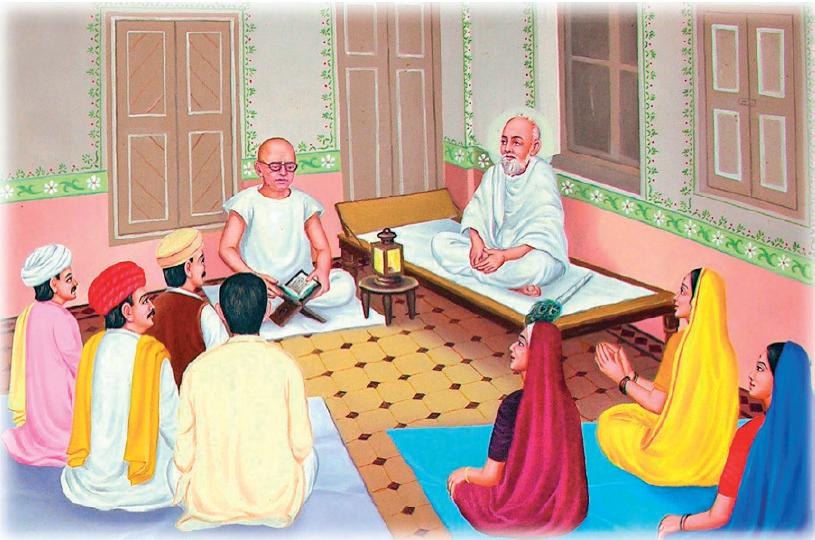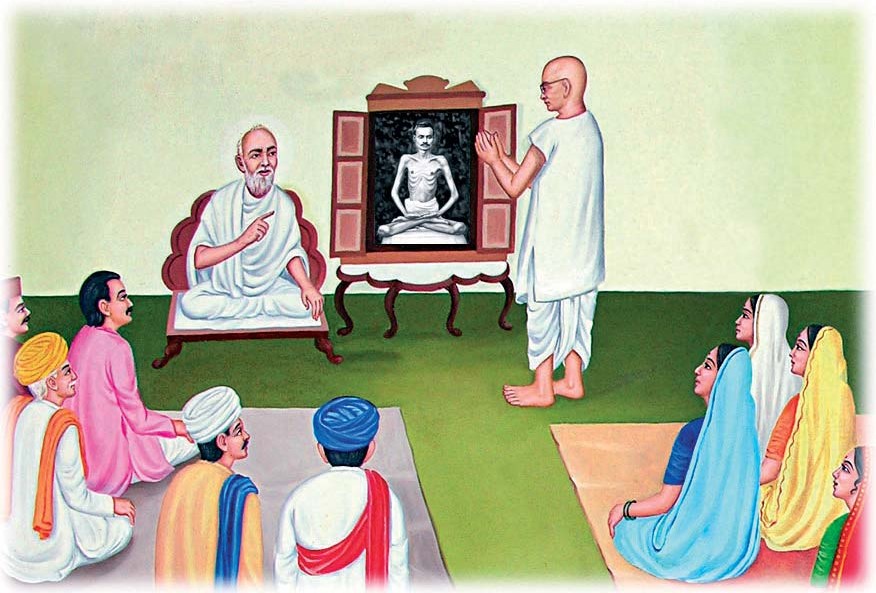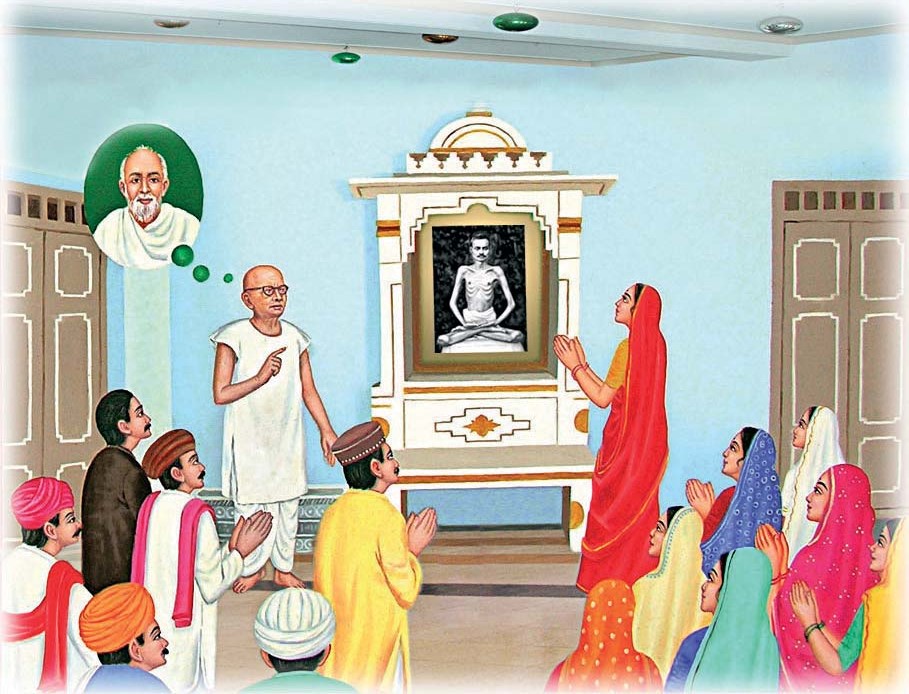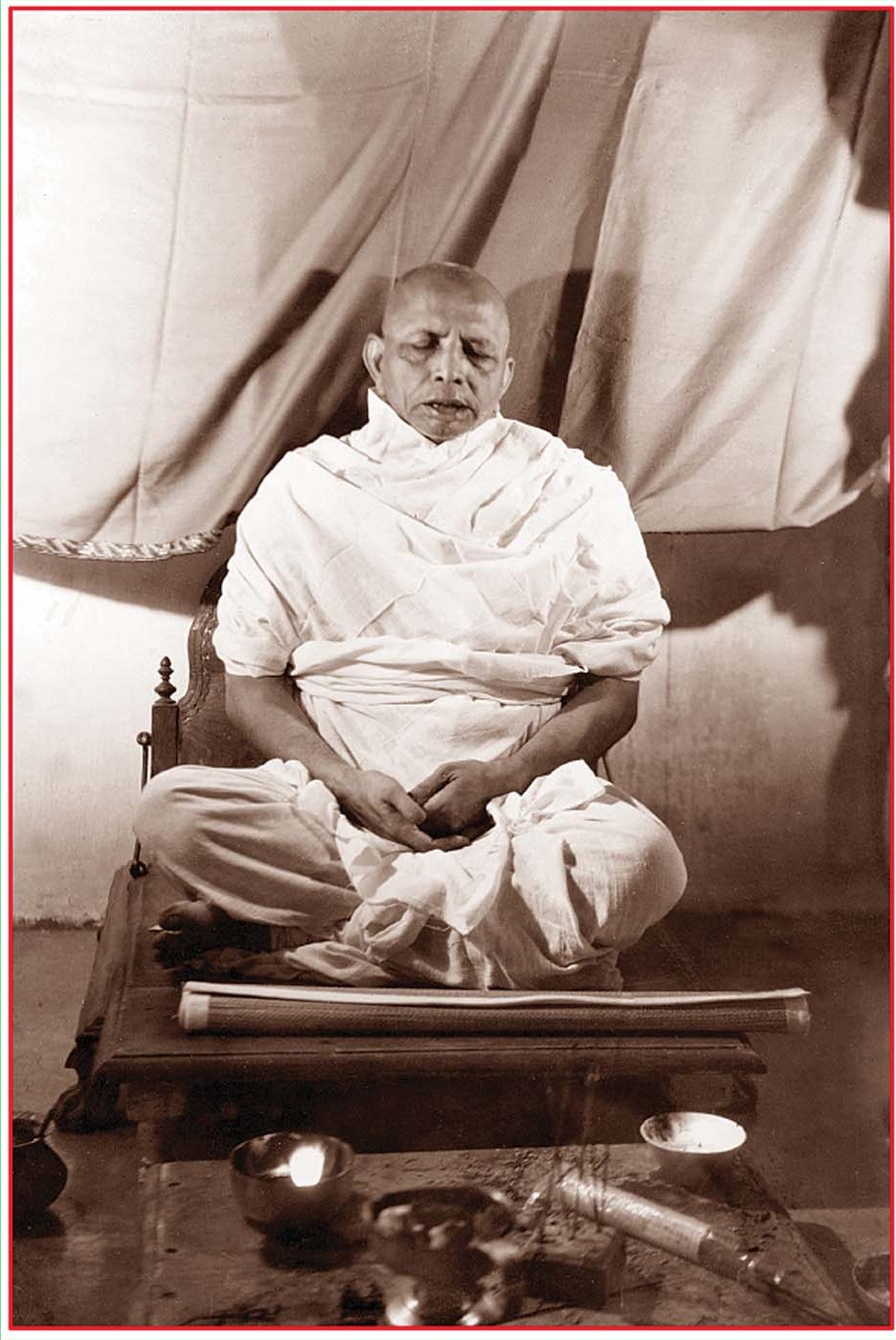Pujyashri Brahmchariji
"ઉપકારી કો નહી વીસરીએ, એ હી ધર્મ અધિકાર"



Pujyashri Brahmchariji
The world knows very little about such rare saints, As Brahmchariji, and does not have the concept of secret miracles. Nature, however does not fail to recognize their greatness that is manifested through various signs.
One being the fact that Brahmachariji’s birth was on Lord Krishna’s birthday in V.S. 1945 in Bandhani village. He was named Gordhan (Govardhan), which is another name of Lord Krishna.

Early Life
• He was born in a Hindu family who workshiped Lord Krishna
• He was a bright student and did his graduation from Wilson College of Mumbai from where he received a B.A Degree. He acquired deep knowledge of the English language from professor Scott. In his childhood, he studied 2 standards together as he was admitted late in the school.
• At a young age of 25, he started publishing articles in English in the Times Of India and earned great respect for his essay on the “Joint Family System”.

25 Years and Thereafter
• He had extraordinary equanimity.
• Once while returning from Bombay, he was standing by the door of a train compartment in Baroda talking to his mentor, Motibhai and others. Someone suddenly closed the door resulting in his Thumb Getting Shorn. He did not say anything to the person and quietly endured the pain. He later went for the necessary treatment.
• He developed great enthusiasm for securing India’s Independence due to which he disregarded his family’s expectation of working for the government as such employement amounted to slavery to the British Regime.
• In Vaso, he setup the first Kindergarten of Gujarat based on the Montessori education system. He even trained the teachers.
• Within a year or tow, Charotar education society was established with their headquarters and own school in Anand. As it required voluntary teachers, Brahmchariji left Vaso in 1919.
• The school’s name was changed to D. N. Vidya Mandir and the head was designated an Acharya.
• Brahmchariji felt uncomfortable to be called an “Acharya – the one who observes perfect conduct.”. He deeply contemplated whether he had the qualities and conduct required to be an Acharya of hundreds of students.
• Therefore he was eager to go to Shri Aurobindo or other great saints to elevate his development and level.
• But after visting various saints, he accepted Agas Ashram’s saint – Shri Laghuraj Swami (also known as Prabhushriji) as his guru.

New Spiritual Beginning
• During the Diwali vacation of 1921, he went home. There he came to know about Shrimadji and Prabhushriji through his relative Bhagwanbhai. Hence he was keen to go to Shrimad Rajchandra Ashram, Agas.
• He prayed to god to show him the true path.
• On Kali Chaudas, he and Bhagwanbhai went to Agas.
• Prabhushriji was sitting under the Rayan tree singing “Mul Marag” and at first glance he felt peace in his heart.
• Prabhushriji knew his mind and affectionately gave the mantra (essence of 14 Purvas) to him. Shrimadji had said that Kali Chaudas and Sunday – such combination comes very rarely. Conincidentally when Brahmchariji got the mantra from Prabhushriji – it was the same day as mentioned by Shrimadji. Prabhushriji experienced immense delight whilst giving this mantra to Brahmchariji.
He developed ardent devotion towards Prabhushriji and spent all the free time from his daily activities towards spiritual pursuit.

Renouncing the Worldly Life
• He had the sole responsibility of his Two and Half year old son after the his wife’s demise.
• His inclination towards renouncing the worldly life kept intensifying but was hesitant because of the responsibility of his son.
• Then, he wrote a long letter to his elder brother, Narsinhbai, expressing his eagerness to give up the wordly life to stay forever at the service of Prabhushriji in order to obtain self-realization.

Beginning of Spiritual Life
• He did not want to stay at the ashram without doing any work so he decided to earn outside and send money. However, when Prabhushriji said there was a lot of work for him at the ashram, he could no longer wait. He got his brother’s consent, resigned from Charotar Education Society and joined the ashram in June 1925.
• His devotion, perseverance, obedience, focus, composure, compassion and many other incredible qualities kept growing and were simply exemplary; they allowed him to progress brilliantly on the path he had embraked on.
• He stayed at the service of Prabhushriji all-day and hardly slept for 1 – 1.5 hours at night. Yet one could always see blissful expression on his face without a hint of tiredness.
• Shrimadji has stated, “Celibacy is helpful and is of fundamental significance for accomplishing composure over conduct, for averting all types of indolences, for uninterruptedly maintaining the inclinations within the soul and to triumph all the methods regarding liberation.”
• So, Brahmchariji took the vow of Celibacy from Prabhushriji. Thereafter, Prabhushriji used to address him as BRAHMCHARI. Everyone else started doing the same and so he came about as being recognized as “BRAHMCHARIJI” rather than Gordhanbhai.

Handing over of Maarg to Brahmchariji
• Prabhushriji knew he had limited time left.
• In Samvat 1992 (1926 AD), he instructed Brahmchariji as follows: “I am now giving you the responsibility for the continuity of Shrimadji’s Moksh Marg and to bless and guide all the new seekers.”
• Referring to the divine qualities of Brahmchariji as a spiritual leader, Prabhushriji once told Manekji Sheth, in presence of 50-60 Mumukshus, in Samvat 1979 (1923 AD) as follows: “Before my time is up, I will have one Brahmchariji to join me in this spiritual journey at Agas Ashram and will stay in my service for 11 years. He will show this divine path and guide thousands of seekers in the future. All of you will be able to feel comfortable to confide in him as you have confided in me.”

Maarg Responsibility on Pujya Brahmchariji
• Ratanben, the respected wife of this Vice President of Agas Ashram, Shri Punshibhai Sheth, once asked Prabhushriji that who will hold their hand and guide them in the future. He pointed to Brahmchariji and remarked: “You can put your full trust in Brahmchariji as you have put in me to give you spiritual and moral support and guidance.”
• At the age of 82, Prabhushriji took samadhi and the responsibilities of entire congregation fell on the should of Brahmchariji.
• His delicate heart experienced deep sorrow at the huge loss of Prabhushriji.
• In these delicate moments of Solitude, Brahmchariji attained self-realization on the 6th day of Jeth Vad 1993 (1937 AD).

Work Of Brahmchariji after Prabushriji
• After attaining self-realization, Brahmchariji composed many scriptures including Pragnava Bodh, Shrimadji Ni Jivankala (Biography of Shrimadji), in-depth translation of Samadhi Shatak and Shri Atmasiddhi Shastra, poetic translations of Vivekbavani, Gyansaar, Lagu Yogvashistha, and several other poetic compositions which were compiled in the Alochana book.
• He had done interpretation of many letters of Shrimadji in simple language.
• Brahmchariji’s heart was so purified by his devotion (Guru Bhakti) to Shrimadji that his teachings and writings have divine power to awaken a seeker instantly.
• Brahmchariji often gave this advice to all his seekers: “A study of Jain agam texts and other scriptures without a clear understanding of Shrimadji’s teaching (Vachanamrut) will not provide the right perspective.”
• Brahmchariji on last few days: On Samvat 2010 (1954 AD) on the 5thday of Kartik Sud month, Brahmchariji asked for forgiveness to all the seekers present in the Agas Ashram.
• On Kartik Sud Six, Brahmchariji told everyone in this discourse, “We have to prepare for Samadhi Maran. We should be brave and not get worried or afraid while facing death but surrender to Shrimadji. We should engage the mind in Mantra Smaran and be ready for the departure of our sould from this body in Maha-Samadhi.”
• On Kartik Sud Seventh of Samvat 2010, Brahmchariji went to Raj Mandir.
• He stood in Kayotsarg (standing tall with hands by the side) posture and his soul left his body.

Secrets that Remain Memorable
• He always remained vigilant and left no stone unturned in overcoming character-related delusion.
• When he went to Idar, Mt. Abu, Girnar, etc. On pilgrimage, he spent the nights in wilderness in deep meditation.
• He stood in Kayotsarg at steel places.
• In Simarda, he spent entire nights in Kayotsarg in dangerous places (high places from where once could fall easily)
• When asked, he would say that sleep needs to be overcome, not to be resorted to.
• His capacity to bear pain was evident when his thumb was shorn at Baroda station.
• Later in life, he lost sight in one eye and yet told no one. People only realized that fact after six months!
• Similary, they found out about his acute wrist and foot pain after a year and a half.
• His neurotic system was affected after being slapped at Raj Mandir by an evil spirit that was only discovered after his death.
• On the way to Simarda from Agas, his feet were hurt by the railway track and he was highly wounded. Bhagatji of Simarda asked him to take rest on which Brahmchariji replied “Body does its own work and we have to do our’s.”
• His life indicated that spiritualism is not merely bare verbal knowledge; it is the vigilant, meaningful endeavor for a delightful life.
• To him devotion for Param Krupaludev was the great endeavor for realizing the self.
• Brahmchariji’s bhabhi said that he never asked for refills at meal times. He ate only what was served to him and would speak little.